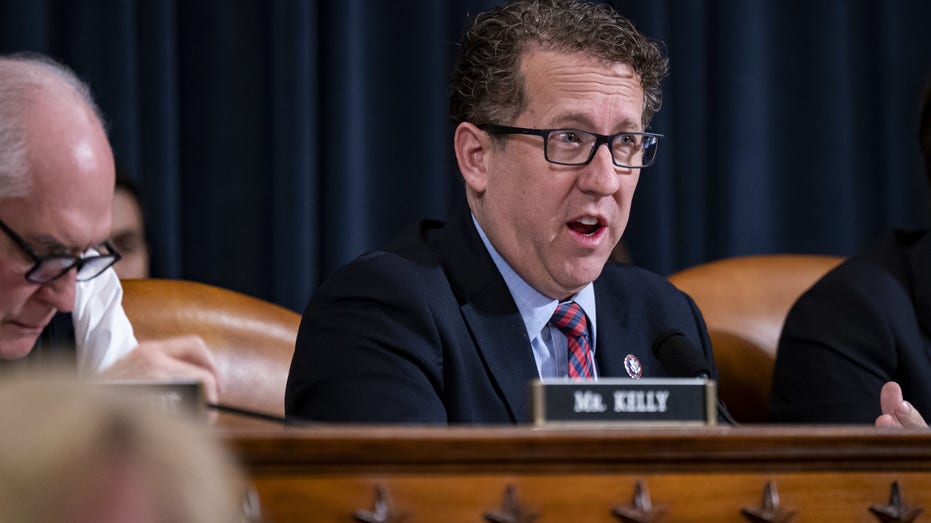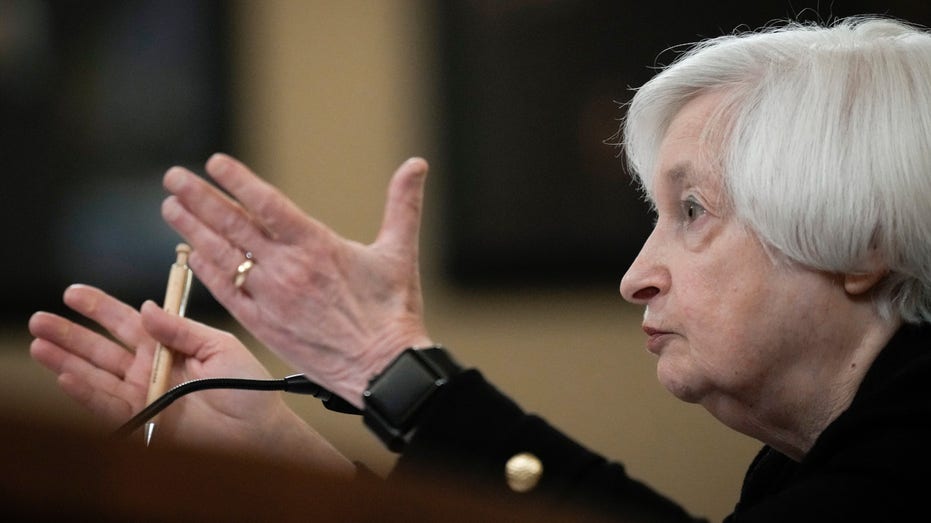Yellen doesn't deny that 90% of new IRS audits would affect those making under $400K
Yellen appears to admit that up to 90% of new IRS audits will be on low-to-middle income taxpayers
U.S. Treasury Secretary Janet Yellen on Friday did not deny a claim made by Rep. Adrian Smith, R-Neb., that 90% of new IRS audits will be on individuals making less than $400,000 annually, contrary to promises from the White House.
When asked on Friday, Treasury Secretary Janet Yellen did not deny that as many as 90 percent of new IRS audits using Inflation Reduction Act resources would come from individuals making less than $400,000 annually.
Yellen testified before the House Ways and Means Committee, where she faced numerous questions about President Biden's budget priorities and how the IRS will use funding that Congress appropriated in Biden's landmark spending and tax law to hire 87,000 new agents. During an exchange with Rep. Adrian Smith, R-Neb., Yellen appeared to admit that the vast majority of new IRS audits conducted with Inflation Reduction Act resources would affect lower- and middle-income individuals, contrary to promises from the Biden administration.
"There's been confusion about the meaning of the directive that you cited in the letter last August and then repeated here today," Smith told Yellen, referencing her August 2022 letter in which she directed that the IRS shall not use new personnel or auditors "to increase the share of small businesses or households below the $400,000 threshold that are audited relative to historical levels."
YELLEN ANSWERS WHETHER IRS WILL CONSIDER RACE, GENDER IN AUDITS AS PART OF BIDEN'S ‘EQUITY’ PUSH
Janet Yellen, U.S. Treasury secretary, during a House Ways and Means Committee hearing in Washington, D.C., on Friday, March 10, 2023. (Al Drago/Bloomberg via Getty Images / Getty Images) Yellen's letter stated that, "contrary to the misinformation from opponents of this legislation, small business or households earing $400,000 per year or less will not see an increase in the chances that they are audited." A Government Accountability Office (GAO) report released last year shows that the majority of IRS audits historically are conducted on individuals and businesses below President Biden's $400,000 threshold. TWITTER USERS ERUPT AT IRS' CALLS FOR THIEVES TO REPORT STOLEN INCOME: ‘GOOD TO KNOW’ Representative Adrian Smith, a Republican from Nebraska, speaks during a House Ways and Means Committee hearing in Washington, D.C., on Friday, March 10, 2023. (Al Drago/Bloomberg via Getty Images / Getty Images) Given that history, Smith asked Yellen for clarification on whether her directive referred to the total number of new IRS audits, or a proportionate number based on historic levels. "I'm talking about the proportion of those small businesses and families," Yellen responded. WERFEL CONFIRMED AS NEXT IRS HEAD When asked, Treasury Secretary Janet Yellen did not deny that up to 90% of new IRS audits using resources from the Inflation Reduction Act could affect taxpayers making less than $400,000. ( Angerer/Getty Images / Getty Images) "Okay. So the proportion, I mean, just for the record, the proportion is 90%," said Smith, referencing the GAO report. "So 90% of the new audits will be, you know, according to the data, that we can expect up to 90% of new audits to be on those making less than $400,000." CLICK HERE TO GET THE FOX NEWS APP Yellen reiterated that the IRA's purpose is to increase the audit rates on high-income earners, but Smith pointed to data that suggests it will be "broader than that." Reached for comment, a spokesperson for the Treasury Department confirmed that Yellen has referred to audit rates when discussing how Inflation Reduction Act resources will be focused going after the wealthy and corporations for tax evasion. The spokesperson pointed out that the same GAO report referenced by Smith shows that the audit rate for people making between $500,000 and $5 million annually declined by 87% between 2010 and 2019. "Secretary Yellen has consistently stated that audit rates for individuals making less than $400,000 per year and small businesses will not increase relative to historical levels," the spokesperson said. Source: Read Full Article



